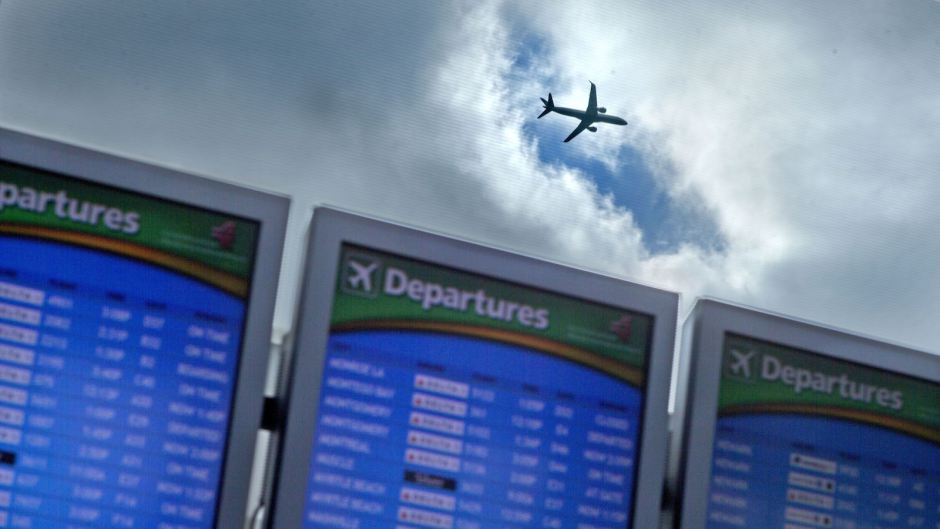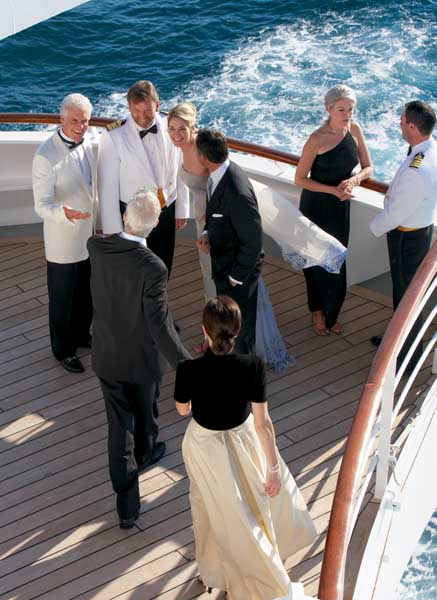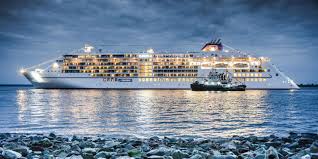 Q – (1.26.24) – Just so you know ……….there’s Fodor’s, AFAR, TripAdvisor, Travel + Leisure and 10,000 blogs that deal with Parisian Bakeries. But, in good faith, we are coming to you in the hopes that you will take our question sort of seriously. My wife, Marie, is of French background. I have childhood memories of ordering French onion soup on Queens Boulevard in a borough of that name – when we could afford it.
Q – (1.26.24) – Just so you know ……….there’s Fodor’s, AFAR, TripAdvisor, Travel + Leisure and 10,000 blogs that deal with Parisian Bakeries. But, in good faith, we are coming to you in the hopes that you will take our question sort of seriously. My wife, Marie, is of French background. I have childhood memories of ordering French onion soup on Queens Boulevard in a borough of that name – when we could afford it.
Now, I write an occasional screenplay and we jet off to Paris whenever we can come up with anything that remotely resembles a valid excuse. OK – this Fall we are going to spend a week in Paris for the primary purpose of finding out and, just for our friends, documenting, where one might go to uncover the best baguettes in the city. We imagine this will take us into any number of colorful neighborhoods, some away from the tourist hordes. And we will visit the best bakeries with a small cooler filled with local provisions purchased that morning so we can quickly find a park bench and immediately begin the tasting/filming process. We don’t want to waste time and we truly feel this is the place to turn. Really enjoy this ad-free site. Hope you can monetize it in some way.
A – We enjoyed your question and, particularly your premise. Having some sort of good-tasting reason to walk around a city gives one purpose and, best of all, takes you into neighborhoods that one might just never visit on any kind of a touring program. We have a list that we think might be a good start. Please enjoy and, if you have a moment, please share your photos with us at documents@traveltruth.com Have a memorable visit.
Maison Landemaine Jules Joffrin
With over a dozen locations in Paris, plus one in Lille and a few in Tokyo, Maison Landemaine might not seem like the authentic expression of the artisanal boulangerie, but the hits still hit. The baguette tradition is crusty and chewy in all the right ways, especially paired with cheeses from the nearby Laiterie cheese shop on Rue des Poissonniers.
4 Rue du Poteau, 75018 Paris, France
Shinya Pain Montmartre
Shinya Inagaki has made bread for some of the most beloved sourdough bakeries in Paris (think Fermentation Générale and the Terroirs d’Avenir boulangerie). At his own operation in Montmartre, Inagaki is making sourdough breads his own way. Olive focaccia, brioches, multigrain breads, and scones are just some of the specials Inagaki scrawls on butcher paper at his tiny storefront on Rue des Trois Frères.
41 Rue des Trois Frères, 75018 Paris, France
Maison Julien Les Saveurs de Pierre Demours
The 2020 winner of Le Grand Prix de la Baguette de Traditional Française de la Ville de Paris, a coveted award recognizing the city’s best baguette, Taieb Sahal makes a standard-bearer for traditional Parisian baguettes. Crusty, airy, and with a warm yeasty smell, the baguettes at Maison Julien in the 17th represent French bread at its finest.
Mamiche
You’ll likely encounter a line when visiting the original bakery outpost of Cécile Khayat and Victoria Effantin’s wildly popular Mamiche bakery, but the wait is worth it. Using natural leaven, Mamiche’s breads are excellent, from the hearty pain de campagne to the lightweight pain de mie, as well as a traditional “miche Mamiche.” Don’t miss the babkas and viennoiserie, too. You can’t go wrong with any of it.
45 Rue Condorcet, 75009 Paris, France
The French Bastards – St Ferdinand
With three locations across Paris and a name that’s fun to say, the French Bastards’ bakery could get by on novelty alone. Thankfully that’s not the case: Breads with honey and figs, hazelnuts, plentiful seeds, rye flour, and more comprise the menu at the three French Bastards locations, and they’re all delicious. Take a hearty loaf to go, and eat a caramel eclair on the way home.
35 Pl. Saint-Ferdinand, 75017 Paris, France
The Rue des Martyrs location of Farine&O frequently has a line around lunchtime, with working Parisians picking up sandwiches, pastries, and sodas to go. The line moves fast and the wait pays off: Baguettes, brioche, and rotating daily offerings will satisfy even the most discerning of bread-heads. Don’t forget to pick up a croissant — they’re flaky beyond human understanding.
10 Rue des Martyrs, 75009 Paris, France
Levain, Le Vin
The concept — and cheeky play on words — at Christophe Fertillet’s Levain, Le Vin is all about pairing great naturally leavened breads with great natural wines. Sit for a planche of breads crafted in-house by Fertillet and charcuterie to match, or take loaves of bread to go along with one of the carefully curated bottles of wine that line the shop’s shelves.
83 Rue du Faubourg Saint-Martin, 75010 Paris, France
Boulangerie-Pâtisserie Terroirs d’Avenir
Part of the strip of shops on Rue du Nil that make up the sustainable agriculture organization Terroirs d’Avenir (or, terroirs of the future), the boulangerie has sourdough breads that are inspired by the organization’s mission. All manner of breads are on offer, from focaccia to multigrain tin loaves, and since the boulangerie is only a stone’s throw from the primeur (or fresh market), fish shop, and butcher, you can have dinner sorted out before you reach the end of the block.
3 Rue du Nil, 75002 Paris, France
Boulangerie Utopie
While many boulangeries around Paris will sell bread, pastries, and viennoiserie (think anything laminated), most excel at one area or another. At Utopie in the 11th, it’s safe to pick between any of the sourdough croissants, elegant pastries, brioche, and inventive breads made with ingredients like sesame and curry powder; kalamata olives; and guava and cranberry.
20 Rue Jean-Pierre Timbaud, 75011 Paris, France
Tout Autour du Pain
A baguette at Tout Autour du Pain is a classic option for picnics, parties, or just midday snacks. Perfectly golden and crisp, they’re the platonic ideal of a baguette. Buy one for later and one to eat immediately in the petite plaza directly across from the shop.
134 Rue de Turenne, 75003 Paris, France
General Fermentation
As the name implies, the M.O. at Fermentation Générale in the 11th is everything fermented. From kefir and kombucha to natural wines, ciders, and pickles, the menu is a dream for anyone who loves sour flavors. Sourdough fits perfectly in that mix. Every bread is tangy and tart, with a depth of flavor reminiscent of San Francisco sourdoughs.
37 Rue de la Folie Méricourt, 75011 Paris, France
Ten Belles Bread
Alice Quillet and Anna Trattles’s sourdough bread bakery Ten Belles Bread was initially confusing to some Parisians, as they didn’t sell baguettes and they used the word “bread” instead of “boulangerie” in the name. The bakery won almost the whole city over with their bread loaves, though. They offer just the right amount of sour, with a custardy inside and crusty outside. Ten Belles sells great coffee, pastries, and lunch specials, too, so you’ll absolutely want to come with an appetite.
17-19 Rue Breguet, 75011 Paris, France
Le Bricheton
In a tiny storefront in the 20th, Le Bricheton is the choice for the truly devoted bread lover. It has limited hours, and the bread sells fast, but if you happen to be in the neighborhood, this tiny bakery is an essential visit. Breads are made from organic flour, sourced in France, often with ancient grains like
50 Rue de la Réunion, 75020 Paris, France
Boulangerie Poilâne
You’d be hard-pressed to find a visitor to Paris who isn’t heading to Poilâne at some point during their trip. That’s because the bakery has been making delicious sourdough wheat loaves for almost 100 years. You’ll recognize a Poilâne miche by the signature swoopy “P” scored into the bread before baking, as well as its brown color imparted by the proportion of stone-ground whole wheat in the dough. Looking to make sandwiches with jambon de Paris? The loaves can be sliced to order.
8 Rue du Cherche-Midi, 75006 Paris, France
Le Boulanger de la Tour
While not every visitor to Paris has the time or money to visit the historic Tour d’Argent restaurant, Le Boulanger de la Tour is more than sufficient as a backup. A rotating menu of breads is available from the famed restaurant’s bakers. They’re so good, you can close your eyes and almost imagine you’ve nabbed a seat in the restaurant’s historic waterfront dining room.
2 Rue du Cardinal Lemoine, 75005 Paris, France
These bakeries are listed by the highly recommended “Eater” Web group.
 Q—I have a guidebook that says Sunday is the best day of the week to book a flight within the USA. Prices seem to go up on Monday. This sort of makes sense but it also seems too simple to be true.
Q—I have a guidebook that says Sunday is the best day of the week to book a flight within the USA. Prices seem to go up on Monday. This sort of makes sense but it also seems too simple to be true. 








